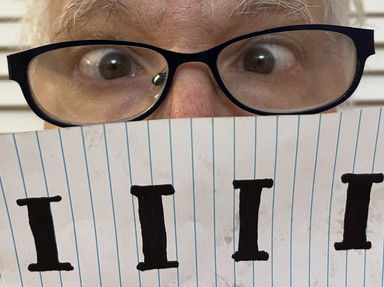Quiz Answer Key and Fun Facts
1. Hermeneutics involves which 4-I'd word?
2. Who wrote in her essays, "It is far more difficult to murder a phantom than a reality," and added the 4-I'd word "insensitivity": "Insensitivity, indifference, callousness - these are the phantoms we cannot grasp, and yet they kill the spirit just the same"?
3. Which of these words is an *antonym* for the 4-I'd word "Irascibility"?
4. In psychiatry and psychology, what disorder is a diagnosable paraphilic disorder in the DSM-5 (Diagnostic and Statistical Manual of Mental Disorders, Fifth Edition)?
5. Which 4-I'd word's etymology derives from the name of an ancient Phoenician city?
6. The 4-I'd word "Multidiscplines" refers to the collaboration of knowledge from professionals from various fields to tackle complex problems. While the "multidisciplinary approach" differs from the "interdisciplinary approach", it is the same as the "transdisciplinary approach."
7. Which of these definitions best fits the definition of the 4-I'd word "Vilification"?
8. The 4-I'd word for the mildest and most common form of gum disease (periodontal disease) is called _____.
9. Which of these 4-I'd words is a synonym for the word "triaging"?
10. The German-American physician and author Martin H. Fischer (1879-1962) said that, "Knowledge is a process of piling up facts; wisdom lies in their..." what 4-I'd word?
Source: Author
Billkozy
This quiz was reviewed by FunTrivia editor
agony before going online.
Any errors found in FunTrivia content are routinely corrected through our feedback system.
